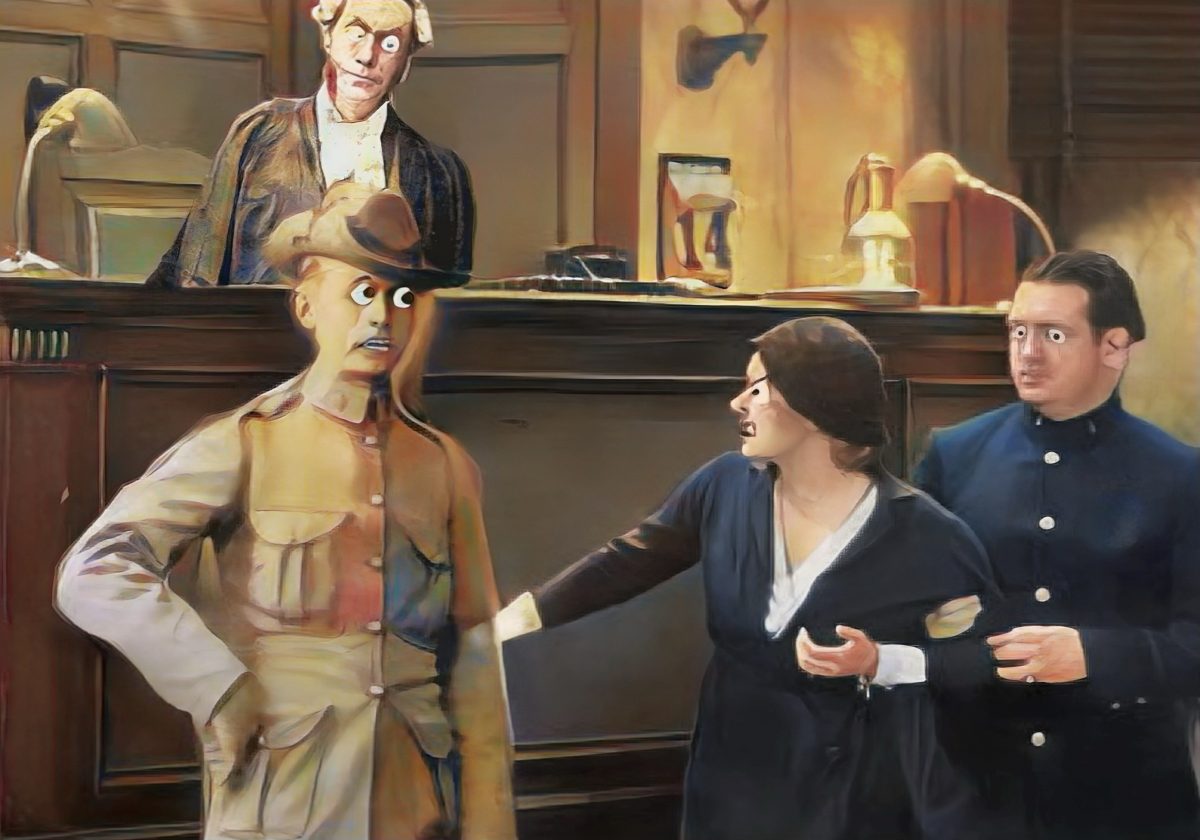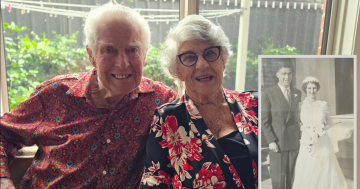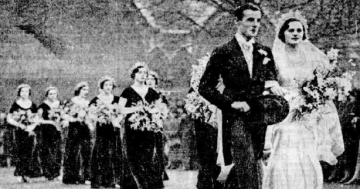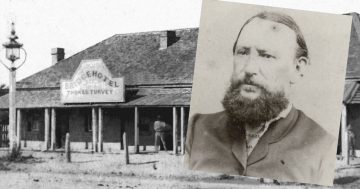
Rose was not pleased that George had begun ‘making love’ to her younger sister. Photo: Chris Roe.
In 21st century Australia, marriage is considered just one relationship option among many and is treated as disposable by trashy reality TV shows like Married at First Sight.
But back at the turn of the 20th century, a marriage contract was a serious thing, divorce was rare and even an engagement was treated as a legally binding agreement.
So it was that in March of 1903 a case of a broken engagement was brought before his Honor, Mr. Justice Pring and a jury of four in a Sydney courtroom.
“A Wagga Wagga Affair” declared the Australian Star as it laid out the details of Miss Rose Cordelia Rudd’s lawsuit against Mr George Ralston for £500 for the “breach of promise of marriage”.
The love affair began in Wagga in 1898 as an “acquaintance soon ripened into affection”, and to make the point Rose’s lawyer read out portions of several love letters written by George.
But in 1899, when the Boer War broke out, George felt he was not getting ahead in Wagga and decided to answer the call to fight for the Empire and joined the Bushmen’s Contingent.
Rose could not recall exactly when George had proposed, but there was an indication that he lacked the money in the moment, and would wed her after returning from the war.
Before he left, the letters continued from his camp in Sydney where he wrote in the “most loving and affectionate terms. In fact, it was quite evident that he was as much in love with her as a man could be with a woman”.
So where did it all go wrong?
Unfortunately, Rose was not able to get to Sydney to farewell George as he prepared to board a ship for South Africa in February 1900. Instead, she sent her younger sister May on her behalf and “that was when the tragedy began”.
George fell head over heels for young May and began corresponding with both sisters in secret, pledging his ongoing affection to Rose and hinting at marriage to May on his return.
As the Australian Star reports, when he did return, rather than “acting the manly part, and going straight to the elder sister and telling her of his changed feelings, he continued writing to the plaintiff in affectionate terms, and subsequently he visited Wagga Wagga and made love to her as if nothing had happened”.
It is worth noting that “making love” in 1903 did not carry the same carnal implications that it does today, but either way, it seems George was getting pretty intimate with both sisters!
When the hapless defendant limped into the witness box, he explained that he had been wounded in the war, told of a groin injury and showed the jury his disfigured left arm.
While he said the injuries had left him “useless for life”, he admitted telling the younger sister May that he would marry her.
The Star captured the exchange between George and Rose’s lawyers.
“But you are going to marry May? — No, I’m not. There’s no engagement.
“You are making love to May? — No, I’m not.
“Will you swear you never made love to her? — No, I will not.
“And you have kissed her several times? — Yes.
They continued to press him about why, if so disabled, he had continued to write lines like, “I think I am the happiest in the world to have such a love as yours”.
“Why did you write like that when you could not marry her? And why did you tie onto the letter this pretty little piece of blue ribbon, and put in the poetry? Notwithstanding that you could not marry her you wrote in this way? — Yes.
“You simply wrote to her to amuse yourself? — No, I did not. I thought I was disabled for life.
“Do you think you are now disabled for life? — Yes.
“And notwithstanding that, you are going to marry May? — There is no engagement.
“Are not you fooling her as you did her sister? — No.”
In the end, the jury returned a verdict for the plaintiff, although the damages were put at £20.
His Honor was unimpressed by the whole ordeal and “refused to certify for costs, on the ground that the action should have been brought in the District Court, and that the machinery of the Supreme Court should not be set in motion over such matters”.
















